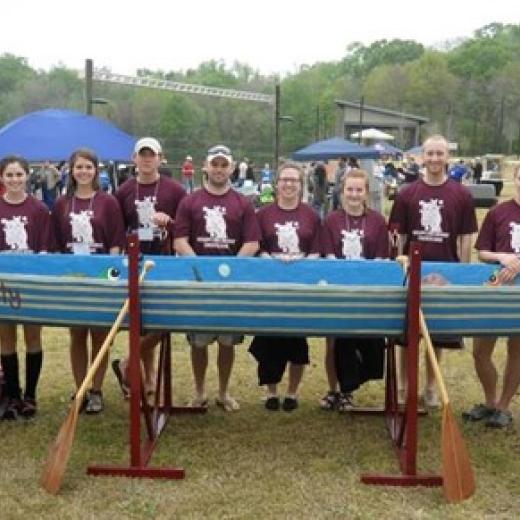May 7, 2025
This is part of a series featuring Albemarle experts who lead the world in transforming essential resources into critical ingredients that power our lives.
In college, Andy Odenthal captained a team that trained for boat races – not in sleek kayaks or graceful sailboats, but in something far less likely to float.
Concrete canoes.
It was part of an annual competition organized by the American Society of Civil Engineers, and Odenthal was studying civil and environmental engineering at Mississippi State University. Before the race, each 300-pound canoe had to be fully submerged and then prove its worth by floating to the surface, confirming that the boat was less dense than water. Only then could four teammates climb aboard and row a course that stretched as far as 10 football fields.
“I started doing it when I was a freshman,” Odenthal says. “Normally, only upper classmen are doing that kind of hands-on, technical problem-solving, but I didn’t want to wait.”
Today, Odenthal still builds things that defy expectations – only now, they’re much bigger and far more complex. As a project director for Albemarle, he works with a team that plays a pivotal role helping create some of the most modern and sustainable ways to extract critical minerals.

